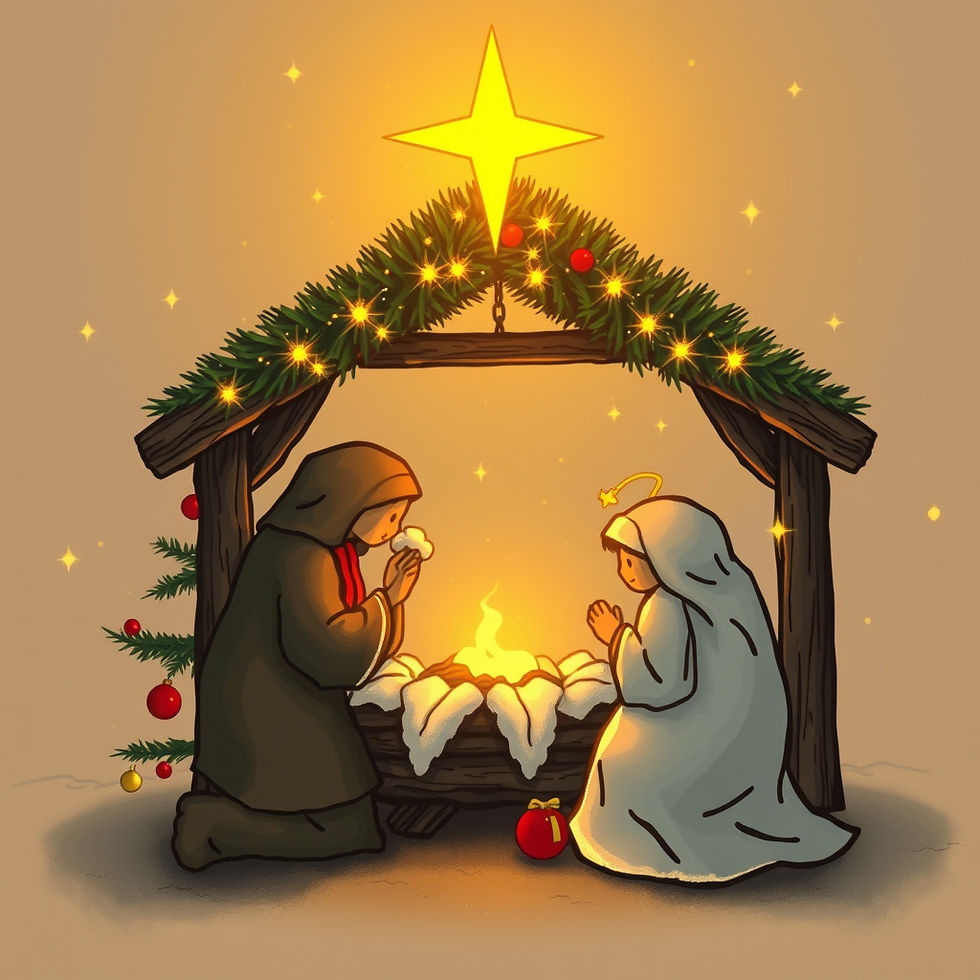Playing The Blame Game
- Eldon Peterson
- Jul 3, 2024
- 3 min read

I miss not having a Sunday paper. I loved going through the sections and getting caught up on the news, sports, and of course, looking at the Sunday comics.
In our family the comics were literally a gift that kept on giving as we would use the colorful comics to wrap presents. The goal was to use one that had a humorous message for the receiver. The problem was that often the punchline of a multi-panel comic wouldn’t fit the box we were wrapping. The solution was easily found using the single panel “Family Circus” comic.
Family Circus is a memorable comic. Comics Kingdom describes it this way saying, “The world’s most popular comic panel, The Family Circus is a sentimental portrait of family life featuring the true-to-life, gentle humor of Daddy, Mommy, Billy, Dolly, Jeffy and PJ.” It humorously dealt with family situations that most can relate to.
A memorable example is how Bil Keane portrays the children’s avoidance of responsibility. One comic shows the family sitting around the dinner table and Dad asks, “All right --- Who is kicking the table?” In turn the children answer with “Not Me”, “Nobody” and “Ida Know”. Keane illustrates this with ghostlike figures with these names kicking the table.
We smile knowing that we too are tempted to avoid taking responsibility by blaming “Not Me”, “Nobody” and “Ida Know”. Why is it so difficult for us to accept responsibility and say, “I did it. I’m sorry”? The answer of course is pride. Pride prevents us from appearing to be anything less than perfect. Even when there are no negative consequences in taking responsibility (Who ate the last cookie?) we are still tempted to blame “Not Me”, “Nobody” and “Ida Know”.
Unfortunately, the pride that prevents us from taking responsibility will also limit the ways in which God can use us. Remember Jesus’ words, “Whoever is dishonest in little things will be dishonest in big things too. If you cannot be trusted with worldly riches, you will not be trusted with the true riches. And if you cannot be trusted with the things that belong to someone else, you will not be given anything of your own.” (Luke 16:10-14)
Our unwillingness to take responsibility for our actions is part of the fallen human condition we inherited from Adam. The irony of the story in Genesis 3 shouldn’t be lost on us. When God confronts Adam for eating the fruit of the forbidden tree, rather than owing up to his rebellious act, Adam plays the blame game. “Then [the Lord] asked, “Did you eat from the tree that I commanded you not to eat from?” The man replied, “The woman you gave to be with me—she gave me some fruit from the tree, and I ate.” So the LORD God asked the woman, “What have you done?” And the woman said, “The serpent deceived me, and I ate.” (Genesis 3:11b–13)
Notice how Adam blames both Eve and God, and how Eve blames the serpent. Neither say, “Yes Lord! I disobeyed, please forgive me.” The problem was that they trusted what they saw rather than what God said. “When the woman saw that the fruit of the tree was good for food and pleasing to the eye, and also desirable for gaining wisdom, she took some and ate it. She also gave some to her husband, who was with her, and he ate it.” (Genesis 3:6)
When we trust in ourselves, in what we see and feel rather than in God, not only will we seek to blame others for our misdeeds, but we will unnecessarily burden ourselves with the guilt and shame. It was guilt and shame that prevented Adam and Eve to be honest. Similarly it is pride, the shame of being less than perfect, that prevents us from confessing our sin and receiving forgiveness.
It is only when we consider the gospel, of how Jesus died to set us free from the guilt of sin, that we can “throw off everything that hinders and the sin that so easily entangles, and run with perseverance the race marked out for us. (Hebrews 12:1b)
Rather than blaming others for our angry outbursts, lustful thoughts or covetous desires, let’s instead quickly confess them, take ownership of them, and free ourselves from sins power over us. In doing this, we will find hope and rest in John’s words, “If we confess our sins, he is faithful and righteous to forgive us our sins and to cleanse us from all unrighteousness.” (1 John 1:9)




Comments